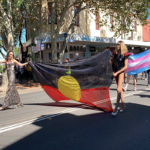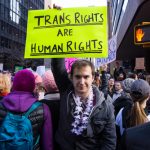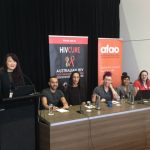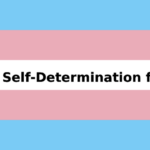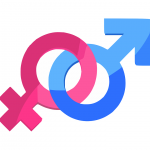NSW May Abolish Requirement for Sexual Reassignment to Change Official Gender
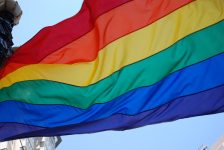
The New South Wales Government is considering changing laws in the state which require transgender people to undergo sexual reassignment surgery in order to change the gender on their birth certificates.
New South Wales is out of touch
Currently, New South Wales is the only state where surgery is necessary for a person to be able to apply for a change of gender on their birth certificate, as set out under the Births, Deaths and Marriages Registration Act 1995 (the BDMR).
The rules stipulate that transgender people must supply statutory declarations from two Australian doctors verifying the medical procedure has taken place.
As a result, those within the transgender community who choose not to have the surgery, but still identify as a different gender than that nominated at birth because often face discrimination.
But more than that, a birth certificate is considered by most institutions as a fundamental piece of official ‘identification’ and if it doesn’t match other forms of ID, or the way a person presents themselves, it can create delays and problems when it comes to the most basic things, like applying for a loan.
Allowing transgender people to ‘self-nominate’
Sexual reassignment is not a simple process. Some people want it, others don’t.
It is expensive and can take several operations, costing thousands of dollars. It is not suitable for every person, and for some it can even be life-threatening.
Now, some trans people want surgery, and it’s important that it’s available. But, others don’t want to have the procedure. And there are also those who aren’t able to undergo it, because it can prove potentially life-threatening.
In recent days a petition with more than 7,000 signatures was tabled in NSW Parliament, calling for transgender people to be able to “self-nominate” without all the hassles that are currently involved.
Family and Communities Minister Kate Washington – acting on behalf of Attorney-General Michael Daley – has said that the NSW Government will consider it, which makes sense considering other reforms set to be introduced, including a ban on gay conversion therapy.
NSW to ban gay conversion therapies
Queensland, the ACT and Victoria have already introduced bans on conversion practices, and now NSW is expected to do so by next year. Western Australia, South Australia and Tasmania have also promised to introduce similar laws, but are yet to do so.
In Victoria, under the laws introduced in 2021, prison terms of up to 10 years apply for anyone caught breaking the law by trying to suppress or change someone’s sexuality by conducting suppression / conversion practices.
There was some controversy last week after the Australian Christian Lobby (ACL) claimed in a newsletter to its supporters that it had been largely responsible for pausing the legislation. However, both the major parties made pre-election promises to ban gay conversion practices and the Minns government is currently drafting legislation. It says that it has been consulting with 130 stakeholders.
A form of abuse
The issue for the NSW Government will be in clearly defining LGBTIQ+ conversion therapies, and making the legislation robust enough to ensure that it criminalises all practices designed to “convert” a person’s sexual orientation.
And while some of the most horrific practices – such as being forced to ingest “purifying” substances; threatening a person, electric shock therapy, hypnotherapy, corrective rape; being prayed over as a form of “healing”; and various forms of exorcism – seem simple enough to identify, some types of counselling sessions can be more borderline.
The legislation needs to make a clear distinction between “supportive” counselling, which would assist a person coming to terms with their sexuality, and interventions that seek to change a person’s sexual orientation.
As difficult as it might be to believe, some of these ‘therapies’ are still being practised today, despite their devastating effect on the mental health of individuals, leading to some taking their own lives.


